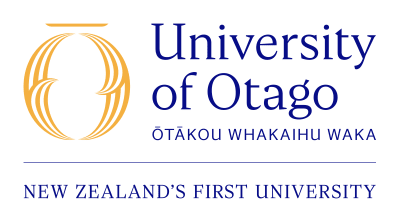
Master of Applied Science (MAppSc) in Geographic Information Systems
Dunedin, New Zealand
DURATION
2 Years
LANGUAGES
English
PACE
Full time
APPLICATION DEADLINE
Request application deadline
EARLIEST START DATE
Request earliest startdate
TUITION FEES
Request tuition fees

STUDY FORMAT
On-Campus
Introduction
Master of Applied Science (MAppSc) in Geographic Information Systems
The Master of Applied Science (MAppSc) is a 180-point, coursework postgraduate degree. A candidate would normally be a graduate but the degree is also open to those with other relevant qualifications.
The MAppSc is designed for students who wish to pursue an interdisciplinary Program of study underpinned by science that delivers versatile skills relevant to multiple end-users. Optional paths are available that emphasise commercialisation, workplace-based projects or independent study.
Optional papers for particular interests
The MAppSc can be completed in 12 months or in stages, providing flexibility for recent graduates and those currently employed.
Why study Geographic Information Systems?
GIS are fundamental to urban and regional planning, wildlife management, using business intelligence in commerce, tourism, public health, traffic management, and a host of other applications. It is a multi-billion dollar worldwide industry, with opportunities almost anywhere in the global economy.
It is an area of study that is truly cross-disciplinary. GIS combines academic rigour with practical application. Accurate, complete and up-to-date spatial information is an immensely valuable resource for businesses and governments.
You will gain a thorough understanding of spatial data, analysis, and visualisation, and be able to apply GIS techniques.
You'll also learn about mobile GIS and web mapping as well as remote sensing (including from drones) and GNSS (GPS positioning.
You will learn skills in project management, cartographic representation, database design, and basic computer programming.
Admissions
Scholarships and Funding
Several scholarship options are available. Please check the university website for more information.
Curriculum
- shall consist of approved papers at 400-level or higher worth at least 180 points, selected from the papers specified in Science Schedule D for the Master of Applied Science subject concerned, and including at least one of APPS 596-598.
- shall normally include papers from more than one subject and at least one of the approved 400-level papers that shall be amongst the first papers taken in the Program of study.
- may, with the approval of the Head of Department or Course Director concerned, include papers worth up to 60 points from 400- and 500-level papers other than those specified in Schedule D.
- A candidate who has completed the requirements for the Postgraduate Certificate or the Postgraduate Diploma in Applied Science shall be exempted from those papers in the Program for the degree which have previously been passed for the certificate or diploma.
Subject areas
Subjects offered for the Master of Applied Science (MAppSc) and Master of Science (MSc):
- Advanced Nutrition Practice
- Applied Geology
- Artificial Intelligence
- Bioengineering
- Computational Modelling (no new enrolments are currently being accepted)
- Computer Science
- Consumer Food Science
- Creative Non-Fiction Writing in Science
- Electronics (no new enrolments)
- Environmental Management
- Geographic Information Systems
- Marine Environmental Science (not offered in 2022)
- Molecular Biotechnology
- Plant Biotechnology
- Quantitative Genetics
- Science and Natural History Filmmaking
- Science Communication
- Science in Society
- Software Engineering
- Telecommunications
Program Outcome
Level of Award of the Degree
The degree may be awarded with distinction or with credit.
Program Tuition Fee
Career Opportunities
There are diverse opportunities for GIS graduates throughout New Zealand and worldwide. You'll gain the specialist skills needed to work as a GIS or Remote Sensing operator, analyst or manager.
You may end up employed by a large corporation, working in local, regional or the national government, or equally, you could work for a consultancy firm. This kind of work tends to have plenty of variety, and opportunities for travel.
You might be identifying the geographical distribution of endangered plant, animal or bird species. You could work for a regional council, analysing the risk of landslips or flood mitigation; or advising on planning issues. You will also be in an excellent position to launch your own business after you have gained some experience in the spatial information industry.
Program delivery
Application Details
Applicants should submit their online application form along with the following supporting documents: scanned copies of their previous official academic transcripts (awards gained, marks, grades); a certified copy of the personal details page of their passport or a birth certificate (in English); Educational Credential Evaluators report (ECE); and certified/notarised translations of original documents which are not in English. After completion of online application, applicant’s proof of identity document must be posted to: International Office, University of Otago, PO Box 56, Dunedin 9054, New Zealand. International student applications for semester 1/summer school study close: Oct-31; Semester 2 study close: Apr-30.
